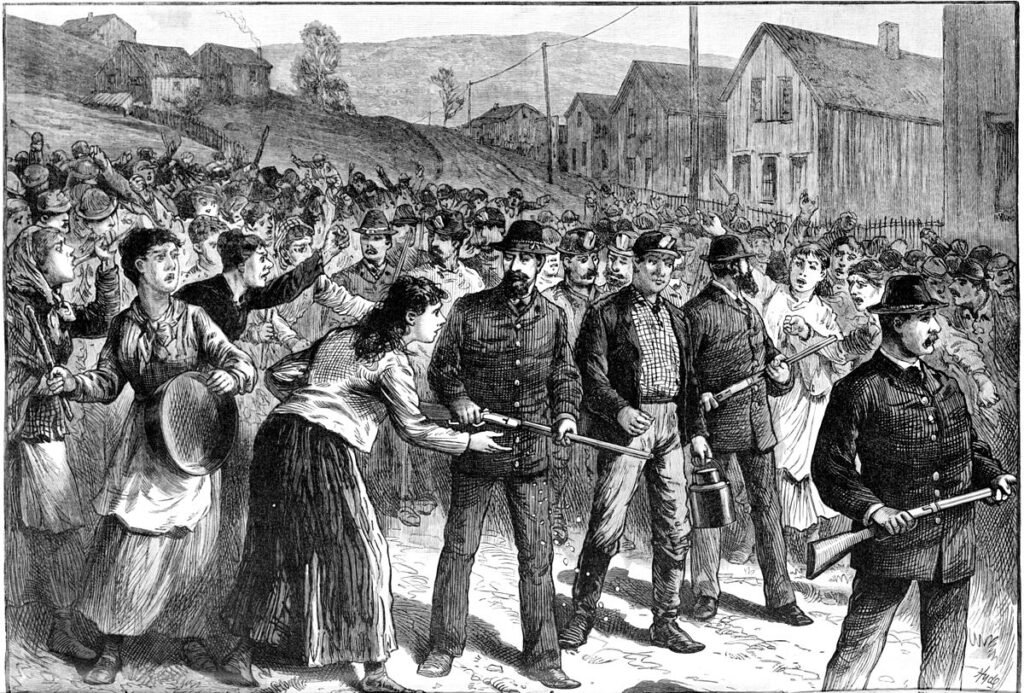Unionbusting in Green Energy Plants

As I’ve said many times, any capitalist who refuses to allow unions into their plants doesn’t care about saving the planet. It’s just more rapacious profit. Simply put, if you don’t allow unions in the green energy plants, unions aren’t going to support green energy programs and the political will for such projects, already dicey given Republican opposition on the principle of destroying the planet to own the libs, will tilt too far against them. But in Pittsburgh, that isn’t stopping a green energy plant from unionbusting, as this Prospect/Capital and Main joint story demonstrates.
When Stan Upshaw got a job at Eos Energy Enterprises Inc. in 2020, he hoped for good pay and benefits, like the ones that went to union workers who decades ago built American manufacturing. After all, Eos’s zinc battery plant in the Pittsburgh suburb of Turtle Creek had already received a nearly $400 million conditional loan guarantee from the Department of Energy, as well as millions in subsidies through the Inflation Reduction Act.
At Eos, Upshaw said he didn’t see the “good clean jobs” the act was meant to create. Instead, he saw management ignore seniority—and force workers to train new supervisors rather than promote from within, he said. The work felt dangerous, too. “We’re having people getting their fingers pinched [under batteries and] working under very hot, humid conditions [where] we’re almost tripping over each other, ” he said.
So earlier this year, Upshaw and some of his coworkers began to push for representation by the United Steelworkers union. In early August, they filed a petition to hold a union election; on Sept. 5, they’ll cast their votes and test whether reality in Turtle Creek matches the talk about the Inflation Reduction Act’s good jobs.
In an emailed statement, Chad FitzGerald, Eos vice president of strategic partnerships and public affairs, said that the company is “a pro-union company,” adding, “We respect our employees’ right to choose or not choose to have a labor representative.”
“I know they’re going to try everything in their power to deter people away from voting for this unit,” Upshaw said shortly after Eos workers filed a petition with the National Labor Relations Board for a union election.
Just a week after we spoke, Upshaw and another outspoken union organizer were fired.
THE 2022 INFLATION REDUCTION ACT represented a public investment of hundreds of billions of dollars aimed at combating climate change while also creating “good-paying union jobs.” The potential effect is huge, say observers. The Inflation Reduction Act and other federal legislation will create 8.5 million jobs by 2032—849,000 per year, according to a recent study by the Political Economy Research Institute at the University of Massachusetts Amherst.
As for what kinds of jobs those should be, the “labor standards built into [President Joe Biden’s industrial policy] are aimed at ensuring stronger protection for workers’ rights and allowing these federal investments to translate into more good, union jobs,” said Stephen Herzenberg, executive director at Keystone Research Center in Harrisburg, Pennsylvania, “That’s what should happen.”
When U.S. Sen. Bob Casey (D-Pa.) announced the Department of Energy loan award, he called Eos “the kind of project we had in mind” when Congress passed the legislation. (Casey had successfully pushed for well-paid clean energy jobs as part of the Inflation Reduction Act.) He went on to call the loan “not only an investment in cutting edge technology, but also in Pennsylvania workers.”
That investment has clearly benefited Eos, which received the legislation’s 45X tax credit, meant to incentivize production of alternative energy systems such as batteries. If Eos expands its production capacity as planned with the $398.6 million Department of Energy loan, the company will be eligible for up to $1.98 billion in 45X tax credits between 2026 and 2032 alone.
This is super important reporting because it demonstrates that Democrats have to do a lot more than just pass a great law like the IRA. The pro-union parts of it must be enforced a lot more strongly than they seem to be. This is especially true if Democrats continue to claim the party of the unions, as Biden has reoriented it back to at least verbally doing. But the rubber has to meet the road and there has to be consequences for anti-union capitalists.


